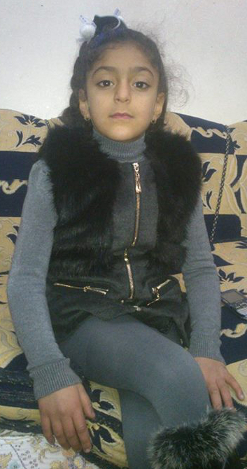She was an old woman, and her leg was in pain. She held out her hand. “Please help”, she said.
Magda took the woman’s hand, and led her to a waiting car. And that was the last Magda saw of her family for a week.
The 19-year-old student became, on June 2, another among the hundreds of Egyptian Christians caught up in a wave of kidnappings since the fall of the Mubarak government in 2011.
Precise figures are elusive, partly because of the general breakdown of law enforcement across Egypt since the 2011 revolution, and partly because some kidnappings are never reported. In one province alone, Minya, more than 150 people have been kidnapped during the past two years, according to the Associated Press, which cited an anonymous Interior Ministry official.
Nationwide, the ministry said the number of kidnappings grew by 145 per cent from 2011 to 2012. The Association of Victims of Abduction and Forced Disappearance claims to have registered 500 cases across Egypt since early 2011 in which Coptic Christian girls have been kidnapped.
Christians aren’t the only victims. The wealthy – a group where Egypt’s Coptic Christians have been well represented – are natural targets. Many of the kidnappings have occurred in the country’s southern regions, where the concentration of Christians is higher.
Church leaders and human-rights activists say Egypt’s government, which until this week had been dominated at the federal and regional levels by the Muslim Brotherhood, created room for criminals to prey on Christians with little fear of prosecution.
Christian frustration was just one of the grievances that millions of Egyptians took to the streets on Sunday. Fed up with a crumbling economy, fuel shortages, lawlessness and a government built upon an Islamic constitution, the protests drove President Mohamed Morsi out of office.
Whether the pace of kidnappings changes during the transition to a new government is anyone’s guess. A week before the protests, World Watch Monitor spoke with two Christian families whose daughters were kidnapped. According to them, here is what happened:
Magda
World Watch Monitor
Magda Adel Gameel, 19 and in her final year of secondary school in Assyut city in the southern province of the same name, had just finished an Arabic lesson with her friends. She asked them to wait for her at Anba Magar Church while she ran an errand to a nearby pharmacy. It was 7 p.m., still daylight.
Coming out of the store, she encountered a veiled old woman, who complained of leg pain and asked Magda to help her walk to her car. Magda walked with her to a car in an alley, and helped lower her into her seat.
As Magda leaned into the vehicle, she was sprayed with something that knocked her out. During the drive, she began to come out of it, and was sprayed again.
She awoke in an empty room. Her necklace, handbag and cell phone were gone.
A veiled woman entered the room with some food, and Magda spoke up in protest. The woman ordered her to remain silent. During trips to the bathroom, Magda’s eyes were blindfolded.
A week went by. The veiled woman returned, and this time asked Magda to call her father and deliver a demand for ransom. The woman dialled the phone.
Magda took it. A man answered, in an unfamiliar voice.
“This is not my father,” she told the veiled woman. The woman hit Magda, and ordered her to demand the ransom payment. Magda did as she was told, but the man said his daughter had not been kidnapped. She was with him now, he said.
The veiled woman took the phone and left the room. Magda heard loud voices.
They had the wrong Magda. The man on the phone, named Ibrahim, was wealthy and had a daughter also named Magda. This Magda, however, came from a less well-off family.
On June 11, the veiled woman entered the room, and knocked out Magda with the spray.
She found herself near a road in the desert. She began to pray, then saw a taxi on the road. She waved it down, and told the driver the story.
“Where are we?” Magda asked the driver. They were on the Cairo-Alexandria Desert Road, near Alexandria, in northern Egypt. The cab took her into the city, where she called her father.
He filed a police report, though nothing has come of it so far. Magda, home and safe, had missed her final exams.
Jessica

World Watch Monitor
Jessica Nady Gabriel, 7, was with her family on June 2, at a wedding party for her uncle and his new bride at the Saraya Wedding Hall in Talkha, a Nile River city in northern Egypt.
The party went into the evening. By 10 p.m., the family had looked everywhere for Jessica. Then her father went to the police station to report her missing.
For the next four days, hundreds of Copts gathered in front of the Talkha police station. A few days later, the kidnappers called the family.
They demanded 650,000 Egyptian pounds (about US $92,000). That’s about 12 times the amount the average Egyptian earns in a year.
The family and relatives pooled their money, though they didn’t say how much, and paid the captors.
The girl was returned on June 21.